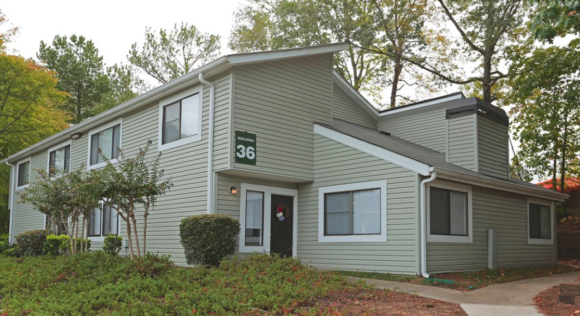A policy that sought to limit exposure from any disputes about security deposits did not protect the insurer from having to defend a landlord against a class-action lawsuit claiming state laws were not followed, a federal appellate court ruled.
In a 2-1 decision, a panel of the 11th District Court of Appeal reversed a decision by the U.S. District Court in Atlanta to grant summary judgment in favor of AEGIS Electric & Gas International Services. The court said the carrier must defend ECI Management LLC against a class-action lawsuit that accuses the company of failing to comply with a law that requires properties to be inspected and any security deposit owed to be returned to the tenant within three days.
It was the second federal appellate court ruling this month that reaffirmed the principle that an insurer’s duty to defend a policyholder is broader than its duty to indemnify. The 5th Circuit Court of Appeals ruled on July 20 that a property insurer must defend the grandparents of a 10-year-old boy who was killed in an all-terrain vehicle crash from a negligence claim, even though the carrier said its policy did not cover any accidents off the insured premises.
In the ECI Management case, the 11th Circuit said even though AEGIS had excluded from coverage any claims regarding the return or “disgorgement” of funds, the class-action lawsuit may result in a court order to pay the plaintiff’s attorney fees — a type of loss that was not excluded by its real estate professional liability policy.
ECI Management manages at least 3,000 units in 15 apartment complexes in the Atlanta metro area, including the Columns at Lake Ridge in Dunwoody. The suit says Nichon Roberson, a physician, rented an apartment at the Columns complex from May 2014 to August 2016.
After Roberson vacated her apartment, ECI withheld $60 from her $437.50 security deposit. Although Roberson hired a professional cleaning service, ECI said she had left a rug in the apartment and a bag of trash under the sink.
In June 2019, Atlanta attorneys Michael B. Terry and Naveen Ramachandrappa filed a class-action lawsuit in DeKalb County on behalf of Roberson and all other tenants who were not promptly returned their security deposits.
Georgia law requires landlords to inspect vacated rental homes and provide tenants with an itemized list of damages within three days. Roberson’s lawsuit alleges that ECI did not comply with Georgia statute Section 44-7-333(b) in an unknown number of instances. The statute allows plaintiffs to collect three times the amount that was unlawfully withheld.
ECI notified AEGIS. The carrier filed a lawsuit seeking a declaratory judgment that it had no duty to defend ECI against the tenants’ class-action suit.
District Court Judge Leigh Martin May granted summary judgment in favor of AEGIS. The policy clearly excluded coverage for “treble damages” or any other type of punitive damages, the judge said.
The 11th Circuit panel, however, said those exclusions should not have ended the analysis. Themajority said even though coverage for some types of court orders are clearly excluded, the policy does cover “compensatory damages,” including attorney fees.
The court said “while it is true that an award of attorney’s fees under the statute, as a practical matter, rises and falls with the award of treble damages, it does not directly flow from those damages. Rather, both the treble damages and the attorney’s fees flow from a finding that that the landlord acted intentionally and in the absence of procedures designed to prevent the wrongful withholding of security deposits.”
The court concluded by saying that the award of attorney fees is potentially a covered loss under the policy, so AEGIS must defend ECI against the claim.
Circuit Court Judge Charles R. Wilson dissented to a portion of the ruling. He said that the majority did not go far enough.
Wilson wrote that Georgia statutes don’t require landlords to reimburse tenants their unlawfully withheld security deposits; they require landlords to pay damages that are equal to the amount that was improperly withheld. The judge said that’s a critical distinction because the policy exclusion addresses only monies that are “disgorged” or returned. He said the policy exclusion may be found to be irrelevant for that reason, in addition to the attorney fee issue.
The underlying lawsuit that spawned the dispute may soon be settled. Ramachandrappa, one of Roberson’s attorneys, said his firm has reached a settlement agreement with ECI that he intends to submit for approval on Monday.
About the photo: Photo of the Columns at Lake Ridge in Dunwoody, Ga. taken from the apartment complex’s website.
Was this article valuable?
Here are more articles you may enjoy.


 Claims Handling Breakdowns From LA Wildfires One Year on
Claims Handling Breakdowns From LA Wildfires One Year on  Bayer to Make $10.5 Billion Push to Settle Roundup Cases
Bayer to Make $10.5 Billion Push to Settle Roundup Cases  NYC Travel Snarled by Snow as Central Park Gets 15 Inches
NYC Travel Snarled by Snow as Central Park Gets 15 Inches  AI Got Beat by Traditional Models in Forecasting NYC’s Blizzard
AI Got Beat by Traditional Models in Forecasting NYC’s Blizzard 